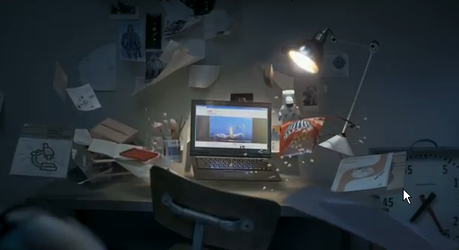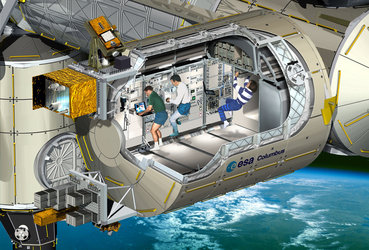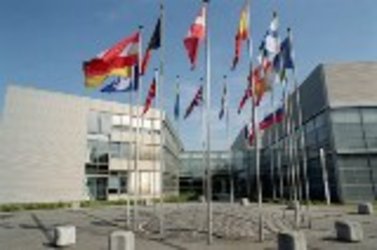Regional winners named in student Space Lab competition
European students are among the regional winners in the YouTube Space Lab student science competition, co-sponsored by ESA. The ultimate winners will have their experiment performed on the International Space Station, live-streamed to a global audience.
Entries from Spain, Egypt, India, New Zealand and the US are among the six regional winners selected today in the YouTube Space Lab science competition.
Sponsored by YouTube, Lenovo and Space Adventures together with ESA, NASA and the Japanese space agency, the international student contest is now in the final round of judging.
The regional finalists in the 14- to 16-year-old category are:
- Patrick Zeng & Derek Chan, New Zealand (Asia Pacific region)
- Laura Calvo & María Vilas, Spain (Europe, Middle East and Africa region)
- Dorothy Chen & Sara Ma, U.S. (The Americas region)
And in the 17- to 18-year-old category:
- Sachin Kukke, India (Asia Pacific region)
- Amr Mohamed, Egypt (Europe, Middle East and Africa region)
- Emerald Bresnahan, U.S. (The Americas region)
These six regional winners will visit Washington, DC, in March for a series of events to honour their achievement, with the participation of ESA.
Winners invited to exceptional events in Washington, DC
These will include a zero-g parabolic flight, a Lenovo IdeaPad laptop, a tour and dinner at the Udvar-Hazy Air & Space Museum, and an awards ceremony at the innovative interactive Newseum museum on 22 March.
At the awards ceremony, the two global winners – one selected from each of the two age groups – will be announced. Their experiments will be performed later this year 400 km above Earth on the International Space Station and live-streamed on YouTube as part of a global event celebrating science and space.
Regional winner in the 14-16 category: Laura Calvo & María Vilas, Spain
Reaching out to future generations of scientists

"The 'YouTube Space Lab' campaign is an excellent, creative way of reaching out to future generations of scientists, on the ground and in orbit," says Thomas Reiter, ESA's Director for Human Spaceflight and Operations.
"Today, numerous fundamental and applied research experiments in life and physical sciences, Earth and space monitoring as well as technology and education are performed on our Columbus laboratory on the ISS, closely coupled to terrestrial research programmes and issues."
Special ESA prize for European winners
In addition to the awards in Washington, the regional winners from Europe, the Middle East and Africa will be invited to ESA's European Astronaut Centre, Cologne, later this year for a hands-on guided tour of the training facilities by ESA astronauts.
Space Station education
The two global winners will get to choose a unique space experience: a trip to Japan to watch their experiment lift off in a rocket bound for the Space Station, or, once they are 18 years old, a one-of-a-kind astronaut training experience in Star City, Russia, the training centre for Russian cosmonauts.

"This grand project demonstrates that math and science matter," said Zahaan Bharmal, Google’s Head of Marketing Operations, Europe, Middle East, and Africa, and the person behind the idea of Space Lab.
"These six winners represent the next generation of scientists and even space explorers. Their families, schools, local communities and countries should be very proud."















 Germany
Germany
 Austria
Austria
 Belgium
Belgium
 Denmark
Denmark
 Spain
Spain
 Estonia
Estonia
 Finland
Finland
 France
France
 Greece
Greece
 Hungary
Hungary
 Ireland
Ireland
 Italy
Italy
 Luxembourg
Luxembourg
 Norway
Norway
 The Netherlands
The Netherlands
 Poland
Poland
 Portugal
Portugal
 Czechia
Czechia
 Romania
Romania
 United Kingdom
United Kingdom
 Slovenia
Slovenia
 Sweden
Sweden
 Switzerland
Switzerland

































